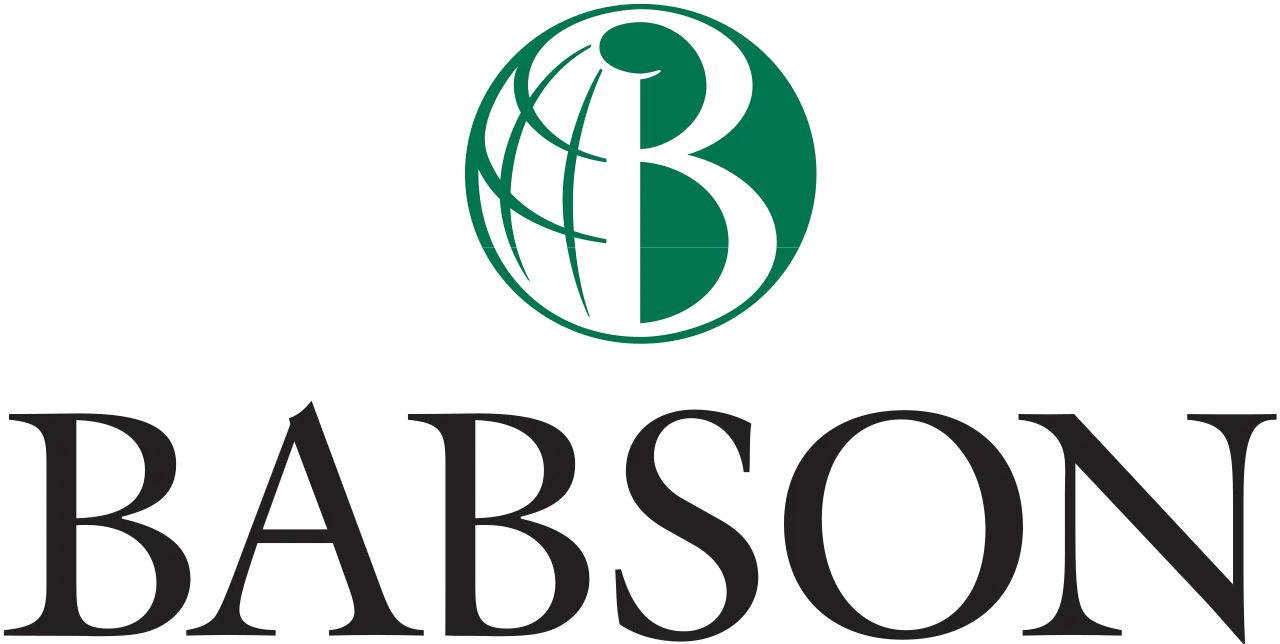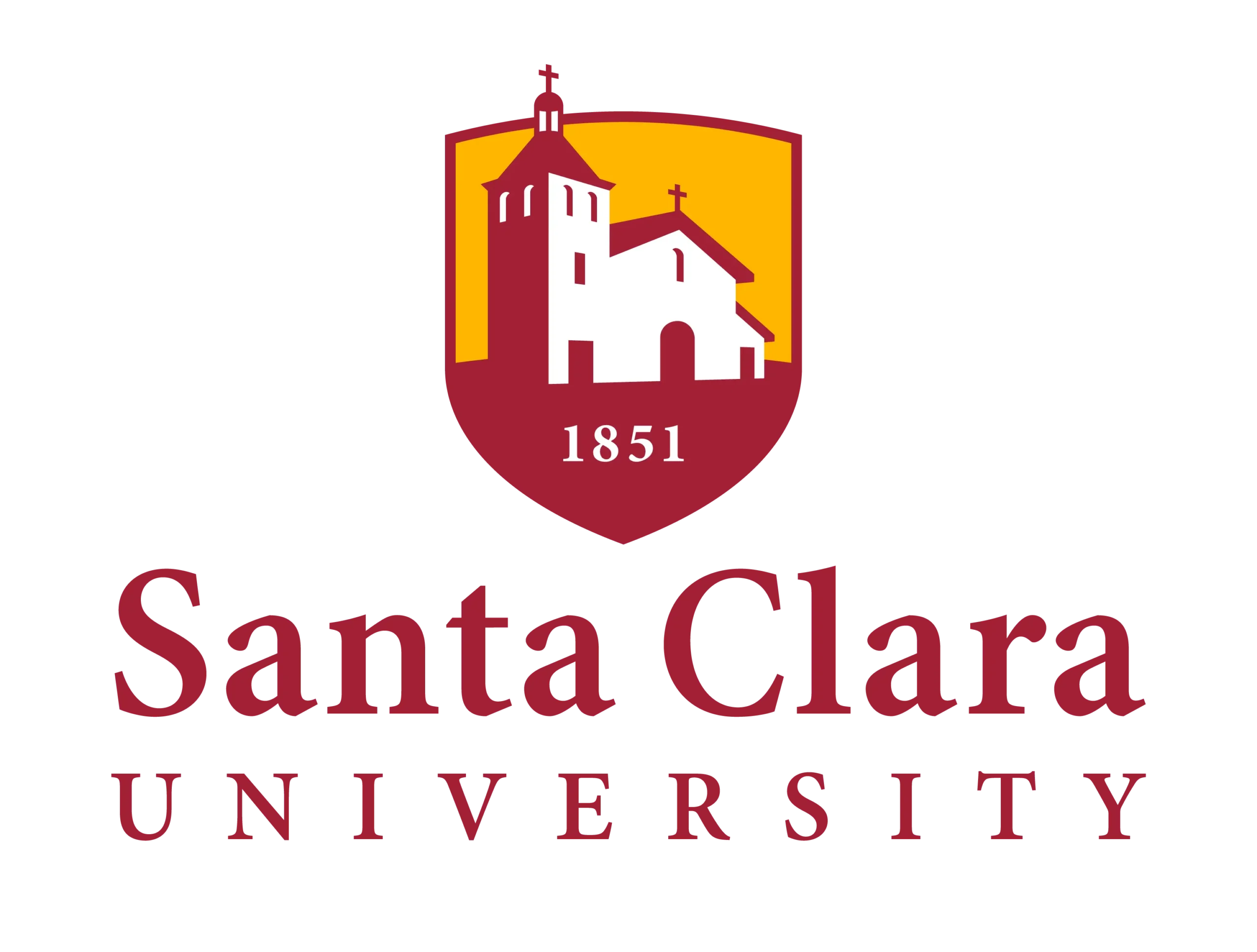Accreditation matters when choosing an online MBA, and AACSB accreditation sets programs apart with its rigorous academic standards and industry recognition. This globally respected credential signifies excellence in business education, ensuring high-quality faculty, innovative curriculum, and strong career outcomes. An AACSB-accredited online MBA provides students with advanced leadership, strategic decision-making, and analytical skills applicable across industries. Employers value graduates from these programs, knowing they have been trained in a curriculum that meets international benchmarks. Flexible online formats allow professionals to balance work and education while gaining the same credibility as traditional on-campus degrees. Whether advancing in a current role or transitioning to a new career, an AACSB-accredited online MBA opens up leadership opportunities in a competitive job market.

Table Of Contents
Featured Online Master’s Programs

OnlineMastersColleges.com is an advertising-supported site. Featured or trusted partner programs and all school search, finder, or match results are for schools that compensate us. This compensation does not influence our school rankings, resource guides, or other editorially-independent information published on this site.
Southern New Hampshire University
PROGRAM: Best & Affordable Online Masters Programs
Southern New Hampshire University is a private, nonprofit, accredited institution with more than 3,000 on-campus students and over 60,000 online students, making us one of the fastest-growing universities in the country. Founded in 1932, we’ve been relentlessly reinventing higher education ever since and have gained national recognition for our dedication to helping students transform their lives and the lives of those around them.
We’re proud to provide affordable, accessible education that students can pursue on our 300-acre campus in Manchester, NH, over our innovative online platform or at our regional centers in Manchester, Nashua, Portsmouth and Salem, NH, and Brunswick, ME.
SNHU has earned the GetEducated.com Best Buy and Best of Business – Best Online Degree awards and is consistently ranked as a top Military Friendly® School by G.I Jobs®.
Which Schools Offer AACSB Accredited Online MBA?
AACSB-accredited online MBA programs are available at numerous universities, ensuring a rigorous and high-quality education. These institutions uphold academic excellence through recognized accreditation standards, preparing graduates for industry leadership roles. Programs cover various business disciplines, integrating practical knowledge with strategic decision-making. Many schools offer flexible formats catering to working professionals and diverse learning needs. With accreditation ensuring credibility, these programs provide students with valuable skills and industry relevance, equipping them for career advancement in today’s competitive business landscape.
Here are some universities that offer AACSB-accredited online MBA:
To Link to this page, please copy and paste this code into your website
<a href="https://www.onlinemasterscolleges.com/online-mba-programs/aacsb-accredited/">AACSB Accredited Online MBA</a>
Code copied successfully!
The Pennsylvania State University
The Pennsylvania State University (Penn State) is a renowned public research institution with campuses across Pennsylvania. Established in 1855, it became the state’s first land-grant university in 1863. Penn State offers diverse academic programs, including AACSB-accredited MBA programs through its prestigious Smeal College of Business. With a commitment to academic excellence, innovation, and accessibility, the university provides rigorous business education tailored for working professionals and future leaders. Its extensive research initiatives and high-quality programs make it a leading graduate education choice.
Indiana State University
Indiana State University (ISU) is a public university in Terre Haute, Indiana, founded in 1865. Originally established as a teacher training institution, it has since expanded to offer diverse undergraduate, graduate, and professional programs. ISU provides AACSB-accredited MBA programs through its Scott College of Business, ensuring high academic standards and industry relevance. The university’s campus features historic and modern facilities, supporting innovation and student success. With a commitment to accessibility and professional growth, ISU offers rigorous business education tailored to evolving market needs.
University of Maryland
The University of Maryland, College Park (UMD) is a public land-grant research institution founded in 1856. As the flagship of the University System of Maryland, it offers over 200 degree programs across its eleven schools and colleges. UMD provides AACSB-accredited MBA programs through the Robert H. Smith School of Business, emphasizing leadership and innovation. Its proximity to Washington, D.C., fosters extensive research partnerships and professional opportunities.
Case Western Reserve University
Case Western Reserve University (CWRU) is a private research university in Cleveland, Ohio, formed in 1967 through the merger of Western Reserve University and the Case Institute of Technology. It offers over 100 undergraduate and 160 graduate programs across STEM, medicine, arts, and humanities. The Weatherhead School of Management provides AACSB-accredited MBA programs. CWRU fosters innovation and interdisciplinary research, attracting a diverse student body.
Lehigh University

Lehigh University, founded in 1865 by Asa Packer, is a private research institution in Bethlehem, Pennsylvania. It offers undergraduate and graduate programs through five colleges: Engineering, Arts and Sciences, Business, Education, and Health. The College of Business provides AACSB-accredited MBA programs. Lehigh spans 2,350 acres across multiple campuses, fostering interdisciplinary learning and research in a dynamic academic environment.
Babson College

Babson College, a private business school in Wellesley, Massachusetts, was founded in 1919 by Roger W. Babson. It offers undergraduate and graduate business programs, including AACSB-accredited MBA programs through the F.W. Olin Graduate School of Business. Babson emphasizes entrepreneurship and experiential learning, maintaining a strong reputation for business education. Its 350-acre campus fosters innovation, collaboration, and leadership development in a dynamic academic environment.
University of Illinois at Chicago
The University of Illinois Chicago (UIC) is a public university in Chicago, Illinois, and the largest institution in the city, enrolling over 33,000 students across 16 colleges. UIC offers AACSB-accredited MBA programs through its College of Business Administration. Its campus, located near the Chicago Loop, fosters academic innovation, interdisciplinary research, and diverse educational opportunities in a dynamic urban setting.
The University of Iowa
The University of Iowa, founded in 1847, is a public institution offering diverse academic programs across 12 colleges in Iowa City. It pioneered the Master of Fine Arts degree and is home to the renowned Iowa Writers’ Workshop. The Tippie College of Business provides AACSB-accredited MBA programs, fostering leadership and innovation. Its campus spans 1,880 acres along the Iowa River.
Santa Clara University

Santa Clara University, founded in 1851, is California’s oldest operating institution of higher education. Its campus is rooted in Jesuit traditions and surrounds the historic Mission Santa Clara de Asís. The university offers bachelor’s, master’s, and doctoral degrees across six schools, including the AACSB-accredited Leavey School of Business. Known for academic excellence, Santa Clara fosters leadership, innovation, and a commitment to ethical scholarship.
University of West Florida
The University of West Florida, established in 1963, is a public institution in Pensacola. Spanning 1,600 acres, it is one of the largest campuses in Florida’s State University System. UWF offers undergraduate and graduate programs through four colleges, including the AACSB-accredited College of Business. Emphasizing research, innovation, and academic excellence, the university fosters leadership and community engagement through diverse learning opportunities.
University of Hartford

The University of Hartford, founded in 1957, is a private institution in West Hartford, Connecticut. Its 350-acre campus extends into Hartford and Bloomfield. Accredited by the New England Commission of Higher Education, UHart offers 82 bachelor’s, 28 master’s, and various certificate programs across seven schools and colleges. The Barney School of Business provides an AACSB-accredited MBA. The university emphasizes academic excellence, research, and professional development.
The Ohio State University
The Ohio State University, founded in 1870, is a public land-grant university in Columbus, Ohio. As one of the largest institutions in the U.S., it enrolls nearly 50,000 undergraduate and 15,000 graduate students. Offering over 400 degree programs across sixteen colleges, Ohio State provides an AACSB-accredited MBA. A member of the Association of American Universities, it emphasizes academic excellence, innovation, and professional development.
North Carolina A&T State University
North Carolina A&T State University, founded in 1891, is a public, historically Black, land-grant institution in Greensboro, North Carolina. As the largest HBCU in the U.S., it enrolls over 14,000 students. The university offers 54 undergraduate, 29 master’s, and nine doctoral programs, including an AACSB-accredited MBA. Its strong focus on engineering, agriculture, and research contributes significantly to academic and professional advancement.
Boston University
Boston University, founded in 1839, is a private research institution in Boston, Massachusetts. With over 4,000 faculty and nearly 38,000 students, it is one of the city’s largest employers. The university offers degrees across 17 schools and colleges, including an AACSB-accredited MBA. BU is strongly committed to innovation and academic excellence, with notable contributions in business, law, medicine, and the arts.
University of Wisconsin-Parkside
The University of Wisconsin–Parkside, part of the UW System, is a public university in Somers, Wisconsin. With 4,644 students, it offers 33 undergraduate majors and 11 master’s programs across 22 academic departments. Accredited by the Higher Learning Commission, UW–UW-Parkside provides an AACSB-accredited MBA program. The university emphasizes academic excellence, research, and community engagement, preparing students for business, healthcare, technology, and public service leadership roles.
What is AACSB Accreditation for Online MBA Programs
AACSB accreditation is a prestigious standard for online MBA programs, ensuring excellence in business education. Recognized globally, it signifies rigorous curriculum standards, qualified faculty, and a commitment to continuous improvement. Accredited programs emphasize research-driven learning, ethical leadership, and industry relevance. Schools undergo a comprehensive review process to meet AACSB’s high benchmarks for academic quality. Employers value graduates from these programs for their strong analytical, managerial, and leadership skills. Choosing an AACSB-accredited online MBA ensures a reputable, high-quality education that aligns with evolving business demands.
Here are some of the most important reasons why AACSB accreditation is crucial.
- Academic Excellence – Ensures rigorous curriculum, high-quality instruction, and continuous program improvement.
- Employer Recognition – Employers highly value degrees from AACSB-accredited institutions, enhancing job prospects.
- Faculty Expertise – Guarantees experienced, research-driven faculty committed to student success.
- Global Credibility – Recognized internationally, providing a competitive edge in the global job market.
- Strong Alumni Network – Connects students with influential professionals, expanding career opportunities.
What Are the Different Types of Accreditation for Online MBA Programs?
Accreditation for online MBA programs falls into three main categories: national, regional, and programmatic. National accreditation focuses on career-oriented institutions, while regional accreditation is widely recognized for academic rigor and credit transferability. Programmatic accreditation specifically evaluates business programs, ensuring they meet industry standards. Each type determines program credibility, curriculum quality, and employer recognition. Prospective students should consider accreditation status when selecting an online MBA to ensure it meets professional and academic expectations for long-term career success.
Here are the six regional accrediting agencies that accredit programs in the US:
- New England Commission of Higher Education (NECHE)
- Middle States Commission on Higher Education (MSCHE)
- Higher Learning Commission (HLC)
- Southern Association of Colleges and Schools Commission on Colleges (SACSCOC)
- Northwest Commission on Colleges and Universities (NWCCU)
- Western Association of Schools and Colleges (WASC) Senior College and University Commission (WSCUC)
Programmatic accreditation for MBA programs focuses on evaluating business education quality and ensuring alignment with industry standards. The most recognized programmatic accreditations for MBA programs include:
- AACSB (Association to Advance Collegiate Schools of Business) – Known for its rigorous academic and research standards, AACSB accreditation is held by top business schools worldwide.
- ACBSP (Accreditation Council for Business Schools and Programs) – Focuses on teaching excellence and continuous improvement in business education.
- IACBE (International Accreditation Council for Business Education) – Emphasizes outcomes-based education and practical business application.
What Specializations Are Available in AACSB Accredited Online MBA Programs?
AACSB-accredited online MBA programs cover many focus areas, ensuring rigorous academic quality and industry relevance. These programs cater to professionals seeking to enhance their expertise in specific business functions. With flexible learning formats, students gain specialized knowledge that aligns with evolving market demands. The curriculum integrates core business principles with targeted coursework, fostering leadership and strategic thinking. Graduates are well-equipped for competitive roles, driving innovation and growth across various industries and organizational settings. Below are some of the specializations in AACSB Accredited Online MBA programs:
Accounting
An MBA in Accounting combines advanced business management principles with specialized accounting expertise. It prepares professionals for leadership roles in finance, auditing, and taxation. The curriculum emphasizes financial reporting, risk management, and regulatory compliance. Graduates pursue careers as financial analysts, controllers, or CFOs, ensuring organizational financial integrity and strategic decision-making.
Business Analytics
An MBA in Business Analytics integrates data-driven decision-making with core business strategies. It uses statistical analysis, predictive modeling, and data visualization to drive organizational success. Graduates develop expertise in interpreting complex data, optimizing operations, and enhancing business performance, preparing for roles such as data analyst, business intelligence manager, or strategic consultant.
Cybersecurity Management
An MBA in Cybersecurity Management combines business leadership with information security strategies. It covers risk assessment, compliance, and cyber threat mitigation to protect organizational assets. Graduates gain expertise in managing security policies, responding to cyber incidents, and ensuring regulatory compliance, preparing for roles like cybersecurity manager, risk analyst, or information security officer.
Marketing
An MBA in Marketing focuses on consumer behavior, market research, branding, and digital strategies. It equips professionals with advertising, analytics, and strategic decision-making skills to drive business growth. Graduates pursue roles in brand management, market analysis, and digital marketing, helping organizations develop competitive advantages in an evolving marketplace.
Entrepreneurship
An MBA in Entrepreneurship prepares individuals to launch, manage, and grow businesses. It covers venture creation, innovation, funding strategies, and business development. Graduates gain skills in leadership, risk assessment, and strategic planning, enabling them to start new ventures or drive innovation within existing organizations in various industries.
Finance
An MBA in Finance focuses on financial management, investment strategies, risk assessment, and corporate finance. It prepares graduates for banking, asset management, financial planning, and corporate finance careers. The program emphasizes analytical skills, economic principles, and financial decision-making to navigate complex markets and drive business growth.
Healthcare Management
An MBA in Healthcare Management integrates business principles with healthcare operations, policy, and leadership. It prepares professionals to manage healthcare organizations, improve efficiency, and navigate regulatory challenges. Graduates pursue roles in hospitals, insurance companies, pharmaceuticals, and public health organizations, focusing on strategic planning, financial management, and healthcare innovation.
Human Resource Management
An MBA in Human Resource Management focuses on talent acquisition, employee relations, organizational development, and leadership strategies. It prepares professionals to manage workforce planning, compensation, training, and labor laws. Graduates pursue corporate HR, consulting, and talent management careers, driving organizational success through effective people management and strategic HR initiatives.
Information Technology
An MBA in Information Technology combines business strategy with technology management. It covers IT governance, cybersecurity, data analytics, and digital transformation. Graduates lead IT initiatives, optimize business processes, and drive innovation in finance, healthcare, and tech industries. Career paths include IT management, consulting, and leadership roles in technology-driven organizations.
International Business
An MBA in International Business focuses on global markets, cross-border trade, and multinational strategies. It covers international finance, global supply chains, and cultural intelligence. Graduates pursue careers in multinational corporations, international trade, and global consulting, navigating complex economic environments and expanding business operations worldwide.
Leadership and Organizational Development
An MBA in Leadership and Organizational Development equips professionals with skills in strategic leadership, change management, and team dynamics. It focuses on fostering innovation, improving workplace culture, and driving organizational success. Graduates pursue leadership roles in corporate, nonprofit, and governmental sectors, guiding teams and implementing practical business strategies.
Nonprofit Management
An MBA in Nonprofit Management prepares professionals to lead mission-driven organizations effectively. It covers fundraising, financial management, strategic planning, and social impact. Graduates develop the skills to drive organizational growth, enhance community engagement, and implement sustainable solutions, making a difference in education, healthcare, and social services.
Supply Chain Management
An MBA in Supply Chain Management focuses on optimizing logistics, procurement, and operations. It covers inventory control, supplier relations, and global distribution strategies. Graduates develop analytical and leadership skills to streamline processes, reduce costs, and improve efficiency in industries like manufacturing, retail, and transportation, ensuring seamless product flow from production to delivery.
Project Management
An MBA in Project Management equips professionals with skills to plan, execute, and oversee projects efficiently. It covers risk management, budgeting, scheduling, and team leadership. Graduates are prepared to handle complex projects across industries, ensuring timely delivery, resource optimization, and strategic alignment with business goals in competitive and dynamic environments.
Public Administration
An MBA in Public Administration blends business principles with public sector management. It focuses on policy analysis, budgeting, leadership, and governance. Graduates are prepared for roles in government, nonprofits, and public service organizations, driving efficiency, strategic decision-making, and community impact while addressing complex societal challenges with effective administrative solutions.
Additional Resources Related to AACSB Accredited Online MBA Programs
Here are some additional resources prospective MBA students can use to find accredited online master’s programs in their preferred field and location:
OMC’s Accreditation Guide: OMC’s Accreditation Guide provides essential insights into accreditation for online master’s programs. It explains regional and national accreditation, programmatic recognition, and the importance of accredited institutions for quality education, financial aid, and career advancement. The guide helps students identify credible programs, avoid diploma mills, and make informed decisions about their graduate education.
U.S. Department of Education (USDE): The U.S. Department of Education (USDE) oversees federal education policies, funding, and initiatives. It ensures equal access to education, administers financial aid, enforces civil rights laws, and promotes educational excellence. USDE also recognizes accrediting agencies, helping maintain academic standards in higher education institutions across the United States.
Council for Higher Education Accreditation (CHEA): The Council for Higher Education Accreditation (CHEA) is a nonprofit organization that promotes academic quality through accreditation. It recognizes accrediting agencies that meet its standards, ensuring institutional accountability and continuous improvement. CHEA advocates for self-regulation in higher education, protects student interests, and works with policymakers to uphold accreditation integrity across colleges and universities in the United States.
- Online College Courses: Discover the benefits and flexibility of online courses and how to select reputable programs and succeed in a virtual learning environment .
- First Generation College Student: If you’re the first in your family to attend college, find tailored resources, scholarship opportunities, and support systems to navigate the unique challenges you may face.
- Online MBA Cost: Break down the expenses associated with pursuing an online MBA to help you understand tuition fees, additional costs, and financial aid options.
- GMAT Guide: Dive into a detailed guide to the Graduate Management Admission Test (GMAT), including preparation resources, test structure, and scoring details for business school applicants.
FAQs About AACSB Accredited Online MBA Programs
Why should I choose an AACSB-accredited online MBA?
An AACSB-accredited online MBA ensures high academic standards, a rigorous curriculum, and faculty excellence. Recognized globally, it enhances career prospects, employer credibility, and networking opportunities. Accreditation signifies a commitment to continuous improvement, innovation, and ethical business practices, making it a strong investment for long-term professional growth and leadership advancement.

 Edited By
Edited By 